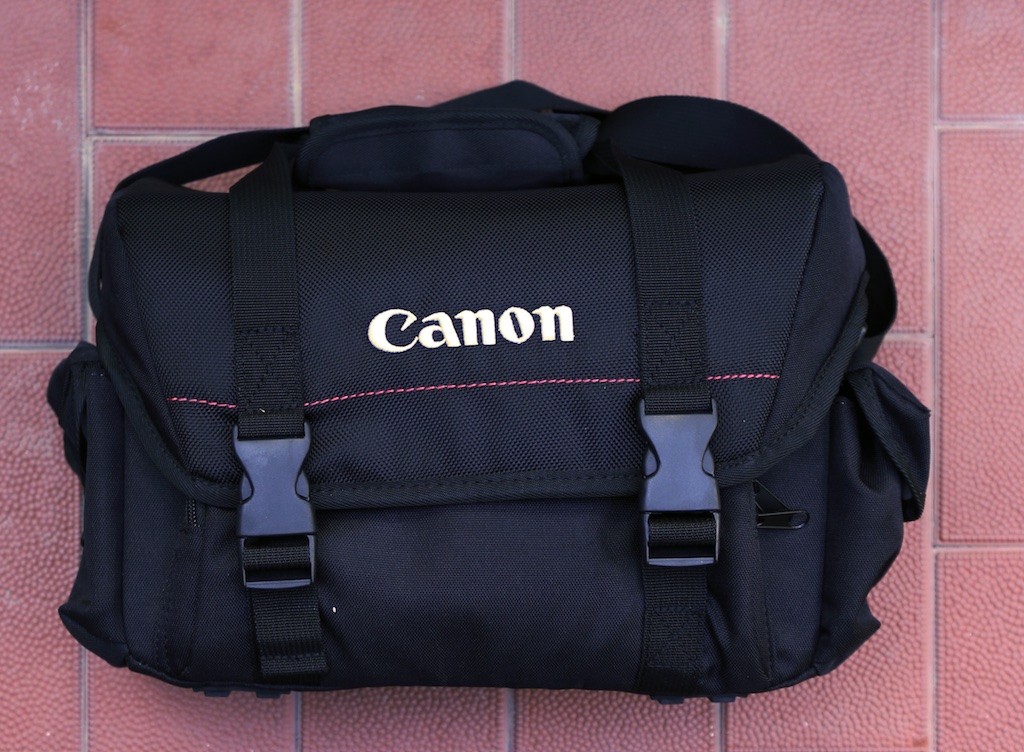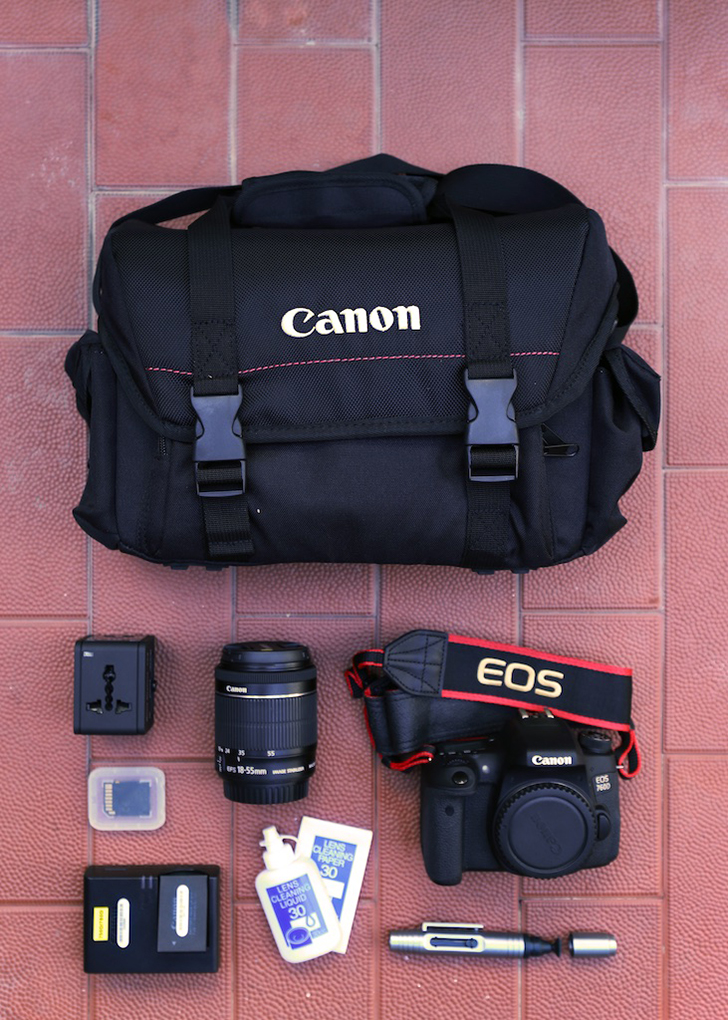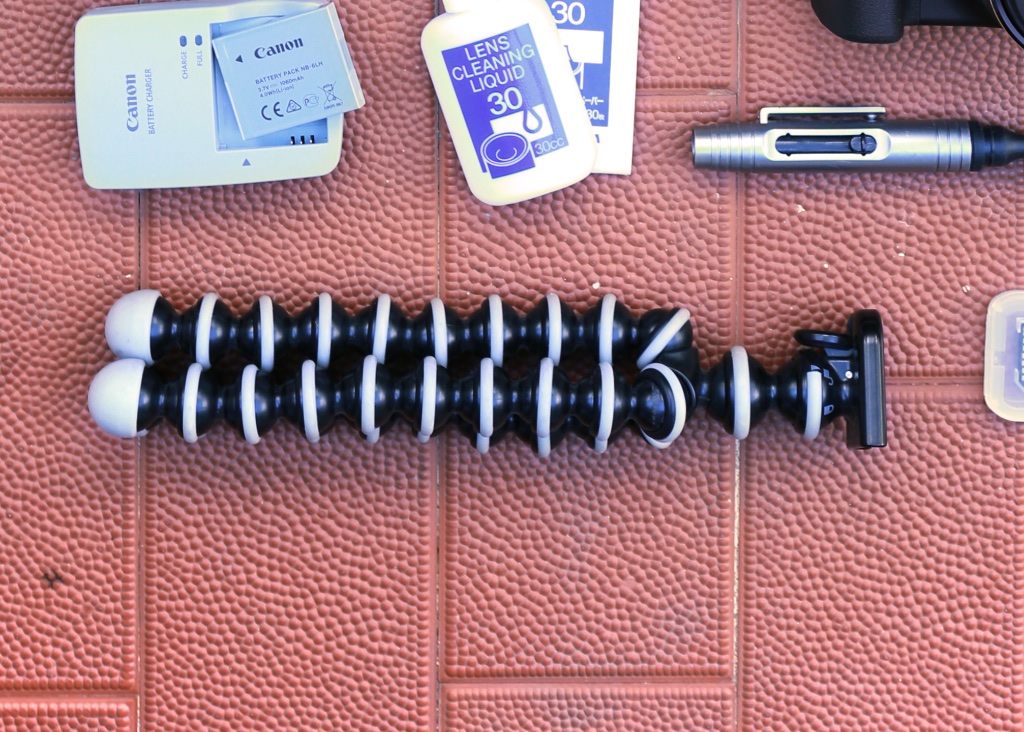Our general rule of thumb here is to pack light. You’ll most probably be out and about throughout the day (and night, possibly!) Bringing the bare minimum of gear and having a small bag is always more manageable. Not only will you be able to find your gear faster, but it'll also be a lot easier on your back.

Your most basic camera bag for travelling
Try to carry-on your camera gear whenever possible. It’s extremely dangerous and risky to check-in your precious kit – we all know how badly some check-in luggage get beat up.
But most of all, always remember that you’re on holiday! So don’t overthink it. Let’s get started!
1) What camera? What bag?
So what camera should you bring? We firmly believe that the best camera is the one you’ve got with you. So if the thought of bringing an expensive DSLR is too daunting, rest assured that a prosumer camera like the Canon PowerShot SX540 HS would do the job just as well.

The PowerShot SX540 HS
Its small form factor – weighing in at only 442g – makes it very portable. The PowerShot SX540 HS also has a versatile lens, which acts as a wide-angle 24mm and a good 1200mm telephoto lens. It also has built-in Wi-Fi so you can share your photos almost immediately!
If you’re bringing a lot of gear, you might want to consider a well-padded camera backpack, as it will distribute the weight evenly across your back. Since we’re advocating travelling light, however, let’s go with a smaller bag.
We like messenger style bags because they’re easier to access your gear in one single movement. Small bags like these are also easier to keep close to your body when in crowded areas.

A small, lightweight, and weather-proof bag like this is a good choice
If you’re visiting a place where pickpocketing is common, we recommend using gaffer tape to tape up any obvious branding on your bag, so you’ll be less of an easy mark.
Your bag should also be weather-proof, or at least weather-resistant. The last thing you need is gear that’s too wet to work!
2) Packing your camera bag
Don’t pack at the last minute! We highly recommend starting earlier when packing your new camera bag for the first time.

An example of a compact, DSLR travel bag
Most camera bags, like this Classic Camera Bag M(RL CL-01M), have adjustable sections (often using Velcro) so you can ensure your gear is as snug as possible.
And that’s really important. Your camera body and lens shouldn’t tumble or jostle about too much while you’re moving around.

Padded compartments are important
It also doesn’t hurt to be extra careful! If you have extra lens or camera bodies, we recommended packing each item in its own padded compartment. This is to avoid any accidental scuffs or knocks – so never overstuff your bag.

Your camera or lens should fit snugly
3) Packing accessories
We recommend keeping items like your memory cards and extra batteries in an outside pocket, if your bag has one. This makes it a lot easier to just grab what you need and continue shooting.

Don’t leave home without these accessories!
Remember to bring some tools to keep your camera and lens clean. Having a lens pen or some microfiber wipes in your bag is always a good thing.
When travelling to colder places (especially destinations with sub-zero temperatures), do remember to bring along more than one extra battery. Battery life gets ‘frozen’ easily in those climates, and you don’t want to be stuck without any power.
Bonus tip! If you’re travelling to humid, wet, or snowy locations, here’s a neat trick to keep your accessories nice and dry. Use an airtight container to keep out moisture.

A compact travel tripod
A travel tripod is also extremely handy to have around. We like those that can wrap around anything, to give you extra stability.
All photos taken using the Canon EOS 6D with the Canon EF16-35mm f/4L IS USM lens.
 |
PowerShot SX540 HS |
 |
RL CL-01M |

































